Job Opportunities in United States
November 19, 2024
Department of Food & Agriculture
OTHER
AGRICULTURAL TECHNICIAN II (SEASONAL)
Per CCR 249.3, this job control may be used to fill subsequent vacancies.
Under the general supervision of the Senior Environmental Scientist (Supervisory), the incumbent will independently perform the more difficult range of field and office support duties, for various fruit fly delimitation programs, maintain fruit fly trapping routes, coordinate the application of pesticides, maintain pesticide inventory and vehicle fleet, oversee pesticide applications performed by outside vendors, perform plane inspections for Japanese beetle, fruit removal and tree removal, communicate with the public at educational public meetings, coordinate with other agencies, and perform various insect/disease surveys for targeted pests. These activities include working independently and in cooperation with other staff, overseeing treatment activities, preparing written reports, performing quality control inspections for treatment-survey-trapping programs, training new employees, and acting as the back-up trapper/applicator. The incumbent must be able to establish working relationships with those contacted during work and work well under pressure while completing assigned work and meeting required deadlines.
-
Deploy traps, perform visual surveys, and apply control measures for target pests such as but not limited to various fruit flies, plant diseases, Japanese beetle, European grapevine moth, and spongy moth.
-
Plan, organize and maintain daily trapping routes, visual surveys, and treatment programs
-
Monitor outside vendors to ensure compliance with Department policies and procedures, and State laws, rules, and regulations; enforce and implement new procedures or processes with seasonal employees, when necessary.
-
Assemble equipment and mix chemicals using the appropriate protocols; assure that the Department complies of all pesticide rules and regulations.
-
Work with field staff in solving technical problems such as equipment breakdowns trap deployment, using effective communication skills, knowledge, manuals, and/or facility operational procedures.
-
Prepare and complete accurate and detailed technical reports (daily, weekly, and/or as required) as associated with detection trapping, survey, and treatment activities, or other related activities.
- Carefully document address, host type and location of samples on property or field by drawing a map and/or using a GPS unit, on submission slip, and on a Pest and Damage Record (PDR).
Candidates may perform these essential functions with or without reasonable accommodation.
Working Conditions
When working at the airports, typical work environment includes frequent walking between aircraft terminals, standing, squatting, crawling, and climbing ladders that are approximately 20 feet high. They will be exposed to warm temperatures and loud noise. They may also work alone inside an aircraft for extended periods of time. Other factors in the work environment includes the presence of moving service vehicles, cargo containers, working around airport employees and their associated equipment. When working at the airport, you will be required to carry supplies such as a fanny pack containing vials to place insects, flashlight, batteries, safety vest, earplugs, tweezers, clipboard, sharpies and pencils, this equipment may weigh several pounds.
To be given access to the airport to inspect planes for Japanese beetle, the Federal Aviation Administration (FAA) requires verification of employment history and a criminal history background check. Individuals must be fingerprinted and pass a 10-year background check in order to be receive an airport badge.
The incumbent will be required to drive, exit and re-enter the work vehicle numerous times during the workday, must possess a valid driver license and have a safe driving record as documented by the Department of Motor Vehicles. If employee is not a California resident but takes a job at this location or becomes a resident, they must get a California driver’s license within 10 days of the job appointment.
The incumbent must be able to apply pesticides, haul loads of fruit and/or removed trees, perform survey work, and work well under extreme time constraints, exercise good judgment, determine priorities, make appropriate well-thought out decisions, allocate staff and resources to achieve maximum results, maintain focus under conditions of duress, and provide accurate assessment of rapidly changing situations (ex: multiple exotic pest detections requiring multiple operations).
The incumbent must be able to establish and maintain effective working relationships with those contacted during the course of work, cooperate with other staff members and leads in completing assigned work, communicate effectively verbally and in writing, with other agencies and the public, and be able to meet required deadlines.
The incumbent may be required to work various shifts (pre-dawn and after 6:00 pm), split shift, overtime, weekends, and holidays. Travel throughout the state to attend meetings or trainings related to pest detection, and treatment and to assist other offices with detection and treatment efforts. Employee may be required to travel by state/ rental vehicle, or other public transportation systems to various locations throughout the state.
The duties of this position are primarily conducted outdoors. The incumbent works in extremes of weather and temperature. Changes in lighting such as alternating bright sunlight and dark shade are encountered. Noise levels constantly vary. Terrain encountered varies from smooth and stable to irregular and unstable. Incumbent may experience regular exposure to dust, pollen and moisture. Some trap types use a specific chemical insect lure; some of these lures may contain small amounts of pesticide. The work can be in urban areas, rural areas, airport facilities, inside and around aircrafts.
When working at the airports, typical work environment includes frequent walking between aircraft terminals, standing, squatting, crawling, and climbing ladders that are approximately 20 feet high. They will be exposed to warm temperatures and loud noise. They may also work alone inside an aircraft for extended periods of time. Other factors in the work environment includes the presence of moving service vehicles, cargo containers, working around airport employees and their associated equipment. When working at the airport, you will be required to carry supplies such as a fanny pack containing vials to place insects, flashlight, batteries, safety vest, earplugs, tweezers, clipboard, sharpies and pencils, this equipment may weigh several pounds.
To be given access to the airport to inspect planes for Japanese beetle, the Federal Aviation Administration (FAA) requires verification of employment history and a criminal history background check. Individuals must be fingerprinted and pass a 10-year background check in order to be receive an airport badge.
The incumbent will be required to drive, exit and re-enter the work vehicle numerous times during the workday, must possess a valid driver license and have a safe driving record as documented by the Department of Motor Vehicles. If employee is not a California resident but takes a job at this location or becomes a resident, they must get a California driver’s license within 10 days of the job appointment.
The incumbent must be able to apply pesticides, haul loads of fruit and/or removed trees, perform survey work, and work well under extreme time constraints, exercise good judgment, determine priorities, make appropriate well-thought out decisions, allocate staff and resources to achieve maximum results, maintain focus under conditions of duress, and provide accurate assessment of rapidly changing situations (ex: multiple exotic pest detections requiring multiple operations).
The incumbent must be able to establish and maintain effective working relationships with those contacted during the course of work, cooperate with other staff members and leads in completing assigned work, communicate effectively verbally and in writing, with other agencies and the public, and be able to meet required deadlines.
The incumbent may be required to work various shifts (pre-dawn and after 6:00 pm), split shift, overtime, weekends, and holidays. Travel throughout the state to attend meetings or trainings related to pest detection, and treatment and to assist other offices with detection and treatment efforts. Employee may be required to travel by state/ rental vehicle, or other public transportation systems to various locations throughout the state.
Minimum Requirements
You will find the Minimum Requirements in the Class Specification.
You will find the Minimum Requirements in the Class Specification.
- AGRICULTURAL TECHNICIAN II (SEASONAL)
- AGRICULTURAL TECHNICIAN I (SEASONAL)
- AGRICULTURAL TECHNICIAN III (SEASONAL)
Additional Documents
- Job Application Package Checklist
- Duty Statement
Position Details
AGRICULTURAL TECHNICIAN III (SEASONAL)
Job Code #:
JC-454840
Position #(s):
014-687-0033-XXX
Working Title:
Agricultural Technician II (Seasonal)
Classification:
AGRICULTURAL TECHNICIAN II (SEASONAL)
$18.47 - $22.03
Shall Consider:
AGRICULTURAL TECHNICIAN I (SEASONAL)
$17.77 - $21.23
$19.94 - $22.68
# of Positions:
5
Work Location:
Los Angeles County
Telework:
In Office
Job Type:
Non-Tenured, Intermittent
Department Information
The Pest Detection/Emergency Projects Branch is responsible for the early detection and prompt eradication of serious exotic agricultural pests. The Branch accomplishes its mission by conducting a statewide trapping program, staffed by county and state inspectors, for exotic insect pests; by implementing special surveys for significant agricultural pests and plant diseases for which traps are not available; and by providing emergency eradication services using the best available technology. The primary objective of the emergency project component is to quickly and efficiently eradicate incipient infestations of serious agricultural pests, thereby preventing permanent establishment and subsequent spread in California.
Special Requirements
- The position(s) require(s) a valid California Drivers License (CDL). You must answer the questions addressing your CDL on your application. Ensure you provide your CDL number, class, expiration date, and any endorsements and/or restrictions.
Application Instructions
Dates printed on Mobile Bar Codes, such as the Quick Response (QR) Codes available at the USPS, are not considered Postmark dates for the purpose of determining timely filing of an application.
Final Filing Date: Until Filled Who May Apply
The following items are required to be submitted with your application. Applicants who do not submit the required items timely may not be considered for this job:
Applicants requiring reasonable accommodations for the hiring interview process must request the necessary accommodations if scheduled for a hiring interview. The request should be made at the time of contact to schedule the interview. Questions regarding reasonable accommodations may be directed to the EEO contact listed on this job posting.
Final Filing Date: Until Filled Who May Apply
This is a non-testing Classification, therefore, anyone meeting the Minimum Qualifications listed on the Classification Specification may apply for this position. Individuals in specific programs, such as the Welfare to Work Program, are encouraged to apply and will be given priority according to the applicable Laws and Rules. Please note on your application your current participation in these programs.
Applications will be screened and only the most qualified applicants will be selected to move forward in the selection process. Applicants must meet the Minimum Qualifications stated in the Classification Specification(s).
How To Apply
Applications will be screened and only the most qualified applicants will be selected to move forward in the selection process. Applicants must meet the Minimum Qualifications stated in the Classification Specification(s).
Complete Application Packages (including your Examination/Employment Application (STD 678) and applicable or required documents) must be submitted to apply for this Job Posting. Application Packages may be submitted electronically through your Cal Career Account at www.Cal Careers.ca.gov. When submitting your application in hard copy, a completed copy of the Application Package listing must be included. If you choose to not apply electronically, a hard copy application package may be submitted through an alternative method listed below:
Required Application Package Documents
Address for Mailing Application Packages
You may submit your application and any applicable or required documents to:
You may submit your application and any applicable or required documents to:
Department of Food & Agriculture
Attn: Human Resources Branch JC-454840
1220 N Street, Room 242
Sacramento, CA 95814
Address for Drop-Off Application Packages
You may drop off your application and any applicable or required documents at:
You may drop off your application and any applicable or required documents at:
Department of Food & Agriculture
Human Resources Branch JC-454840
1220 N Street, Room 242
Sacramento, CA 95814
ELECTRONIC APPLICATION IS PREFERRED. All mail or drop-off applications must include JC-454840
08:00 AM - 05:00 PM
The following items are required to be submitted with your application. Applicants who do not submit the required items timely may not be considered for this job:
- Current version of the State Examination/Employment Application STD Form 678 (when not applying electronically), or the Electronic State Employment Application through your Applicant Account at www.Cal Careers.ca.gov. All Experience and Education relating to the Minimum Qualifications listed on the Classification Specification should be included to demonstrate how you meet the Minimum Qualifications for the position.
- Resume is optional. It may be included, but is not required.
Benefits
Benefit information can be found on the Cal HR website and the Cal PERS website.
Contact Information
The Hiring Unit Contact is available to answer questions regarding the position or application process.
Hiring Unit Contact:
Yesica Torres
(916) 215-2066
yesica.torres@cdfa.ca.gov
Hiring Unit Contact:
Yesica Torres
(916) 215-2066
yesica.torres@cdfa.ca.gov
Please direct requests for Reasonable Accommodations to the interview scheduler at the time the interview is being scheduled. You may direct any additional questions regarding Reasonable Accommodations or Equal Employment Opportunity for this position(s) to the Department's EEO Office.
EEO Contact:
Office of Civil Rights
(916) 654-1005
Civil_Rights@cdfa.ca.gov
California Relay Service: 1-800-735-2929 (TTY), 1-800-735-2922 (Voice) TTY is a Telecommunications Device for the Deaf, and is reachable only from phones equipped with a TTY Device.
EEO Contact:
Office of Civil Rights
(916) 654-1005
Civil_Rights@cdfa.ca.gov
Hard Copy Applications:
If you are dropping off or mailing in your application, please use the Examination/Employment Application, STD 678 Revised 06/2024 version.
Additional Information:
If the classification you are applying for has an education requirement, transcripts will be required to verify you meet the minimum qualifications of the classification. Please be sure to redact any confidential information before uploading your transcripts.
Upon hire you may be required to provide official sealed transcripts or an original degree or certificate.
Applicants with foreign degrees may be asked to provide an official foreign transcript evaluation which indicates course work is equivalent to a degree from an accredited U.S. College or University.
This position may require a medical clearance.
Alternate Classifications and Training and Development assignments may be considered.
Please do not include any confidential information such as social security number, marital status, ethnicity, age, salary or disability information on any of the documentation uploaded with your online application.
If the classification you are applying for has an education requirement, transcripts will be required to verify you meet the minimum qualifications of the classification. Please be sure to redact any confidential information before uploading your transcripts.
Upon hire you may be required to provide official sealed transcripts or an original degree or certificate.
Applicants with foreign degrees may be asked to provide an official foreign transcript evaluation which indicates course work is equivalent to a degree from an accredited U.S. College or University.
This position may require a medical clearance.
Alternate Classifications and Training and Development assignments may be considered.
Equal Opportunity Employer
The State of California is an equal opportunity employer to all, regardless of age, ancestry, color, disability (mental and physical), exercising the right to family care and medical leave, gender, gender expression, gender identity, genetic information, marital status, medical condition, military or veteran status, national origin, political affiliation, race, religious creed, sex (includes pregnancy, childbirth, breastfeeding and related medical conditions), and sexual orientation.
It is an objective of the State of California to achieve a drug-free work place. Any applicant for state employment will be expected to behave in accordance with this objective because the use of illegal drugs is inconsistent with the law of the State, the rules governing Civil Service, and the special trust placed in public servants.
The State of California is an equal opportunity employer to all, regardless of age, ancestry, color, disability (mental and physical), exercising the right to family care and medical leave, gender, gender expression, gender identity, genetic information, marital status, medical condition, military or veteran status, national origin, political affiliation, race, religious creed, sex (includes pregnancy, childbirth, breastfeeding and related medical conditions), and sexual orientation.
It is an objective of the State of California to achieve a drug-free work place. Any applicant for state employment will be expected to behave in accordance with this objective because the use of illegal drugs is inconsistent with the law of the State, the rules governing Civil Service, and the special trust placed in public servants.
Latest Job Opportunities




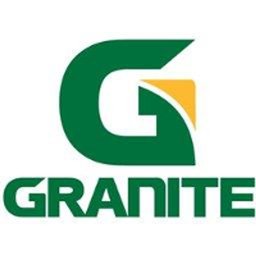
November 20, 2024
Layne Christensen Company
Water Pump Installer - Layne
Middletown
FULL TIME
View Details
November 20, 2024
Mondelēz International
Associate Manager, Omnichannel Activation Kroger & Albertsons
FULL TIME
View Details
November 20, 2024
State of Ohio Jobs
Youngstown - Employer Services Specialist - 20067798
Youngstown
FULL TIME
View DetailsSimilar Jobs
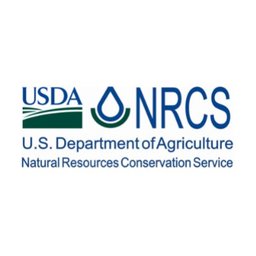
November 15, 2024
US Natural Resources Conservation Service
Natural Resource Specialist (Agricultural Conservation Easement)
Little Rock
FULL TIME
View Details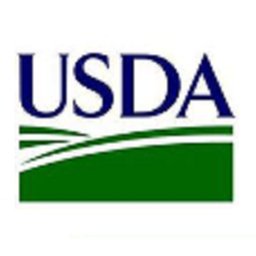
November 19, 2024
US Agricultural Research Service
Agricultural Research Science Techncician
Mandan
FULL TIME
View Details
November 5, 2024
CompleteRx
Pharmacy Technician (Part-time, Weekends)
Alamogordo
PART TIME
View Details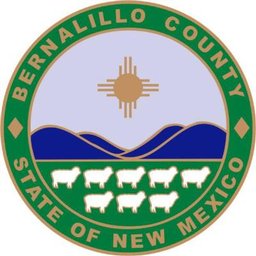
November 4, 2024
Bernalillo County Government
Records Technician I
Albuquerque
FULL TIME
View Details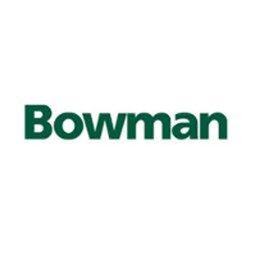
November 5, 2024
Bowman Consulting Group, Ltd.
Survey SUE Technician III - Albuquerque, NM
Albuquerque
FULL TIME
View Details